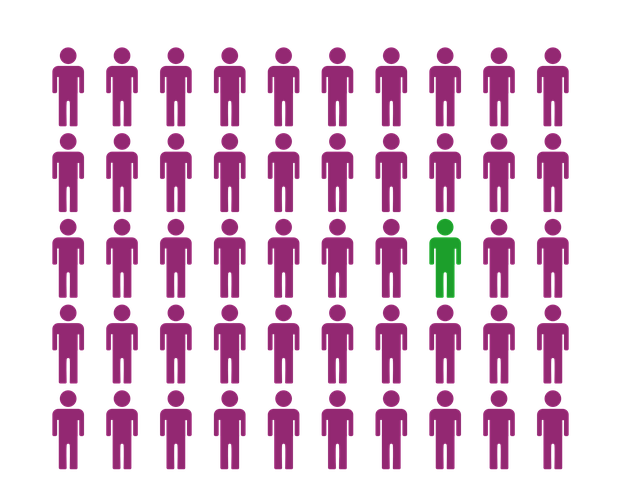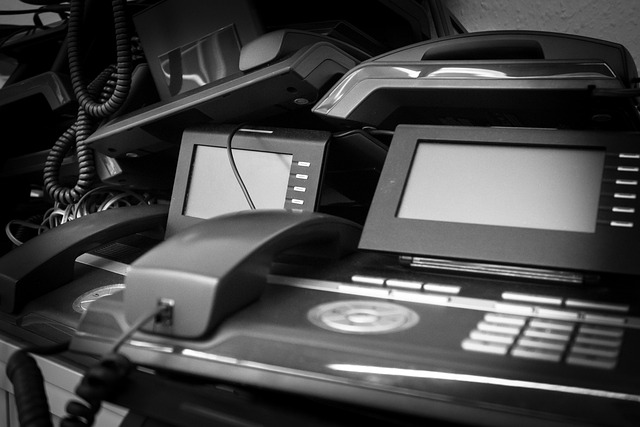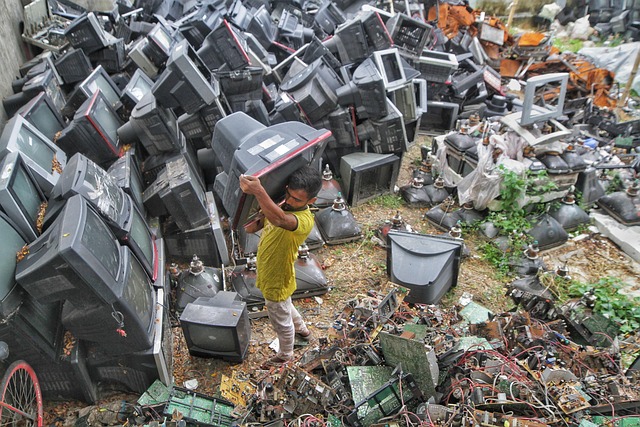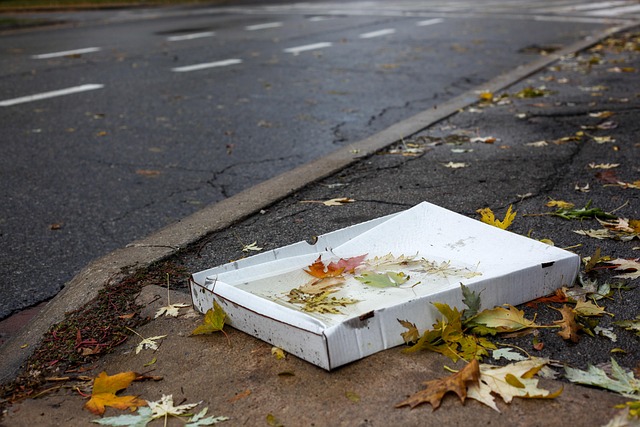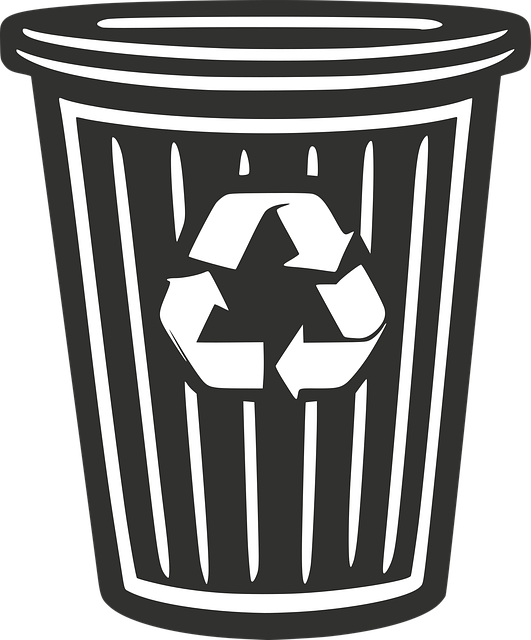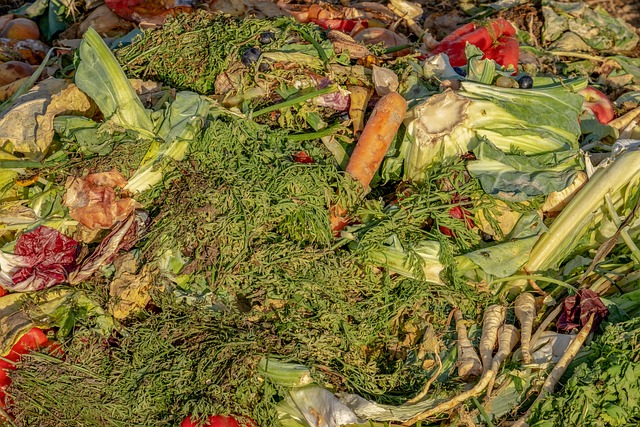Boston is enhancing its environmental sustainability through robust e-waste management initiatives, modeled after successful programs in cities like New York. The city organizes regular collection events for electronic waste and has a dedicated hazardous waste collection schedule that includes e-waste. With high turnout at these events and multiple accessible recycling centers, Boston aims to responsibly manage the disposal of over 20,000 tons of e-waste annually generated by its tech-using population. These proactive measures position Boston as a leader in sustainable e-waste management compared to similar tech hubs like New York City.
Boston is making strides in addressing the growing concern of electronic waste (e-waste) through organized collection events. With a focus on sustainable e-waste management, the city has been actively engaging its residents and local businesses in this initiative. This article explores Boston’s thriving e-waste collection efforts, delving into the partnerships that drive successful recycling, and highlighting community engagement strategies for a greener future. Discover how these initiatives position Boston as a leader in NY-area e-waste recycling.
- Boston's E-Waste Collection Events: A Growing Initiative
- – Overview of the city's e-waste management efforts
- – Statistics on electronic waste in Boston and its impact
Boston's E-Waste Collection Events: A Growing Initiative

Boston’s growing commitment to environmental sustainability is evident in the increasing number of e-waste collection events taking place across the city. These initiatives, often organized by local non-profit organizations and government bodies, aim to promote responsible disposal and recycling of electronic waste. With a focus on reducing the environmental impact of outdated technology, these events provide residents with an accessible way to dispose of items like computers, phones, and small appliances safely and securely.
In line with Boston’s efforts to emulate successful programs from other cities like New York, where e-recycling drop-off points are abundant and NYC e-waste collection for events is well-established, these local initiatives showcase a promising trend. The boston hazardous waste collection schedule, while not exclusively catering to e-waste, includes designated days and locations for the safe disposal of electronic items, further emphasizing the city’s dedication to this growing movement.
– Overview of the city's e-waste management efforts
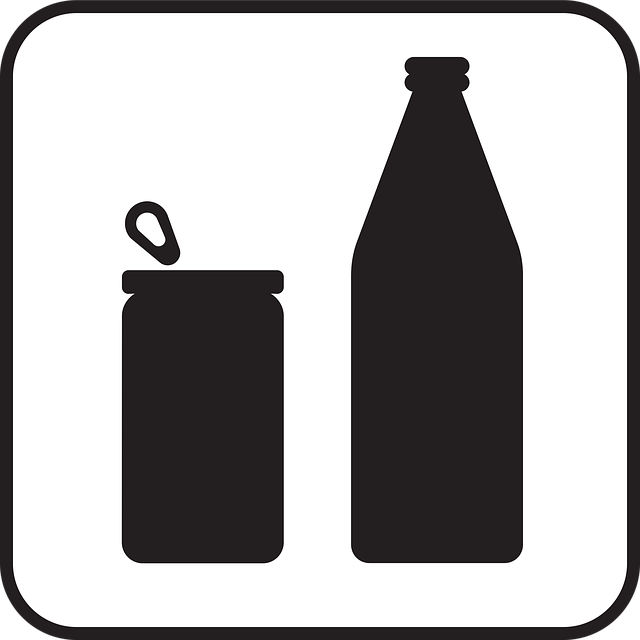
Boston has been actively working on improving its e-waste management system, recognizing the growing issue of electronic waste (e-waste) in urban areas. The city’s efforts focus on encouraging responsible disposal and recycling of electronic devices to reduce environmental impact. One notable initiative is the organization of regular e-waste collection events across various neighborhoods, making it convenient for residents to dispose of their old electronics safely. These events often attract a significant turnout, demonstrating Boston’s commitment to sustainable practices.
In addition to these events, there are several electronic recycling centers in and around Boston that cater to both residential and commercial needs. Some centers even offer after-hours and weekend services, like those found in New York City, ensuring accessibility for busy individuals and businesses. The nyc electronic waste recycling statistics highlight the successful implementation of recycling programs in neighboring cities, inspiring similar initiatives in Boston. Similarly, boston electronic recycling centers open late provide a much-needed service to small businesses and residents with unconventional work schedules, promoting proper e-waste disposal across the region.
– Statistics on electronic waste in Boston and its impact

Boston, like many urban centers, faces a growing challenge with electronic waste (e-waste). Statistics reveal that the city generates significant amounts of e-waste annually, ranking among the highest per capita producers in the nation. This surge is primarily driven by the constant upgrade cycle of consumer electronics and the retirement of older technology. According to recent data, Boston residents and businesses generate over 20,000 tons of e-waste each year, equivalent to roughly 13 pounds per person.
The impact of improper e-waste disposal is severe. Electronic devices contain toxic substances like lead, mercury, and cadmium, which can contaminate soil and water if not handled correctly. Fortunately, Boston has taken strides to address this issue with dedicated e-waste collection events and recycling centers. These initiatives, supported by partnerships between local governments and recycling specialists, ensure that a significant portion of Boston’s e-waste is recycled or repurposed, reducing environmental harm and fostering a more sustainable future for the city compared to its e-waste counterparts like New York City, known for its large-scale computer recycling programs. Additionally, Boston’s electronic recycling centers, many operating with extended hours, cater to both residents and businesses seeking responsible disposal solutions, including data center waste removal and the recycling of diverse electronic components.
Boston’s e-waste collection events are a promising step towards a greener future. By facilitating efficient e-waste recycling, these initiatives not only help reduce the environmental impact of electronic waste but also promote sustainable practices among residents and businesses alike. With continued support and participation, Boston can serve as a model for e-waste management, inspiring other cities like New York and beyond to follow suit. Together, we can ensure that technology advances without leaving behind a trail of harmful waste.







